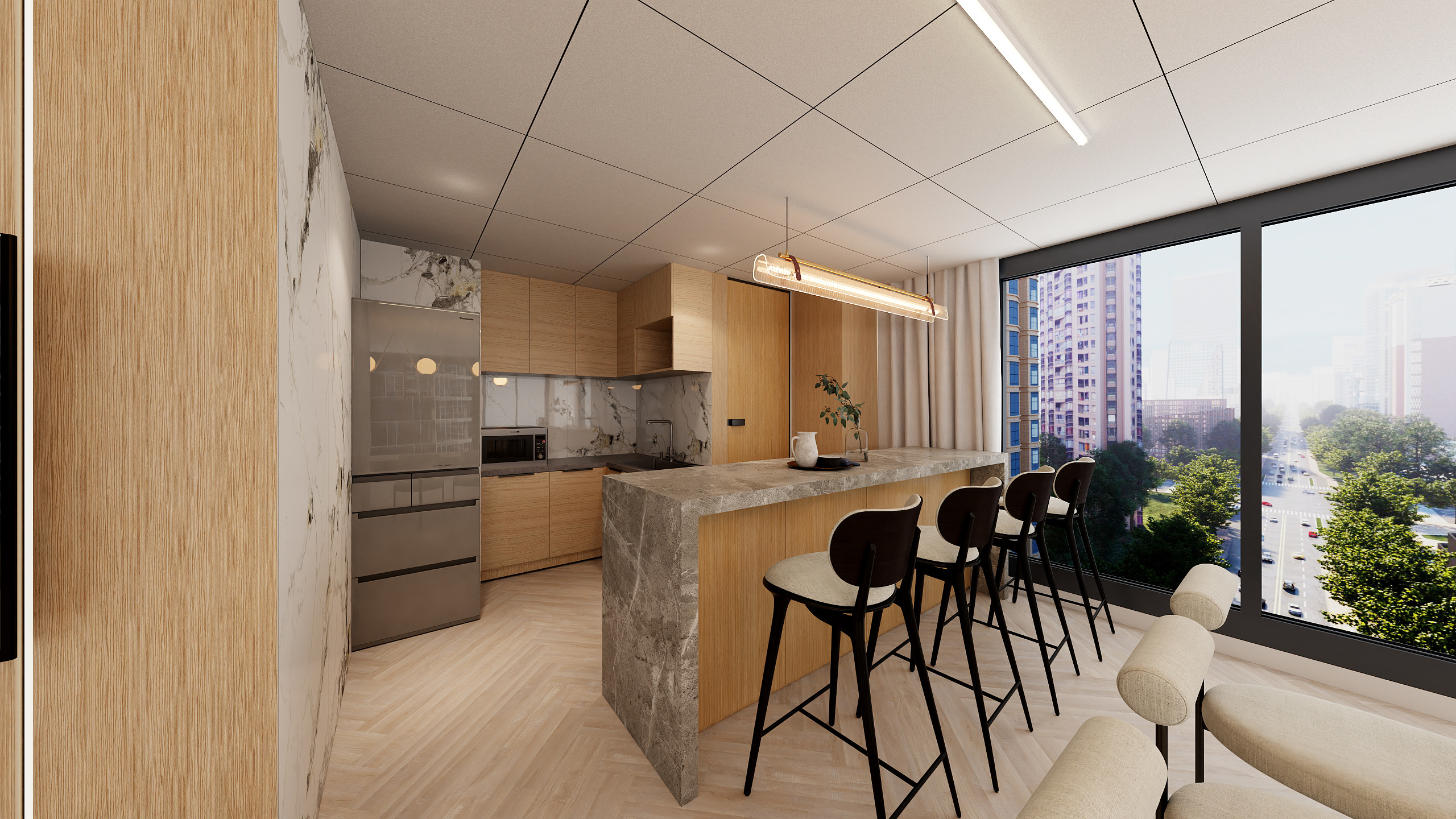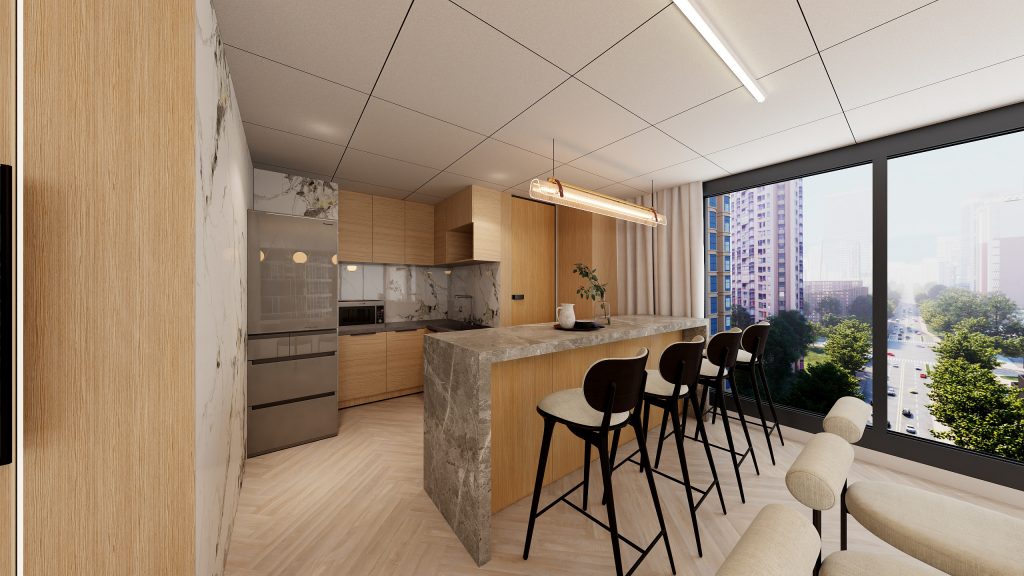For startups, choosing an office has always been a headache. In New Zealand, known as the ‘last pure land on earth’, office rentals have emerged, and more and more entrepreneurs, freelancers, and startups are choosing shared offices as their workspace. However, while enjoying these conveniences, the pitfalls in the leasing process cannot be ignored. Today, let’s uncover the pitfalls in office leasing in New Zealand together.

Detailed Introduction to Shared Office Space
Before understanding the pitfalls of office leasing, let’s first learn about the conveniences provided by shared office spaces and what we can do in this space to better understand it and understand the needs of office leasing.
- Basic office space
There are usually three rental options for shared offices, such as:
(1) Mobile workstation: Renting any desk as a workspace in a shared office space is a flexible leasing method suitable for 1-2 entrepreneurs or short-term tenants.
(2) Fixed workstation: Rent a dedicated office desk, suitable for users who want to rent an office at a lower cost than renting a traditional office.
(3) Independent Office: An office specifically designed for enterprises, with a relatively large space area that can accommodate teams of various sizes, suitable for medium to large teams that require more private and fixed workspace.
- Supporting services
Shared offices will provide comprehensive supporting services for demanders, such as:
(1) Office equipment: Shared offices will be equipped with printers, water dispensers, and other devices to meet daily office needs.
(2) Leisure facilities: Provide tea rooms, rest areas, entertainment facilities, etc., to create a comfortable office environment.
(3) Business services: Provide various business services such as express delivery reception, front desk reception, and secretary power reception to improve office efficiency.
(4) Conference activities: equipped with meeting rooms of various sizes and negotiation areas to meet the needs of entrepreneurs for business meetings and events.
A guide to avoiding pitfalls in office leasing
Many renters are curious why the monthly rent for a shared office space is high despite the fact that the rental fee is cheap? In fact, renting an office not only incurs workstation fees, but also involves several other aspects. Therefore, when renting a shared office, these “pitfalls” must be avoided.
- Rent related: Refuse hidden additional items
Rent is the core part of office rental, often including multiple aspects, such as:
(1) Workstation rental: Before signing the contract, it is necessary to confirm whether the workstation rental includes all basic operating expenses, such as water supply, electricity, property management fees, etc. Some suppliers may attract customers with low prices, but later add fees under various pretexts.
(2) Meeting room rental: As an important resource for shared office space, it is important to understand whether the use of the meeting room is included in the workstation rental or charged on an hourly/daily basis, and inquire if there are more economical rental plans such as monthly or annual packages.
(3) Non office time expenses: For teams that need to work overtime or on weekends, non office time electricity and air conditioning fees may become a significant expense. Therefore, before leasing, it is necessary to clarify the calculation method and whether these expenses can be adjusted in order to arrange work hours reasonably and reduce costs.
- Other expenses: Carefully calculate
Get a detailed understanding of expenses other than shared office rent, calculate carefully, and make reasonable choices, such as:
(1) Parking fee: If the office is located in the city center or busy traffic areas, the parking problem cannot be ignored. Understanding the calculation method of parking fees, whether there are reserved parking spaces, and the convenience of surrounding parking resources can help make reasonable choices.
(2) Printing fee: Before renting, confirm whether additional fees are required for printing equipment, including the charging standards for printing, copying, scanning, and other services, and compare whether it is more cost-effective to purchase printing equipment on your own.
- Contract details: Avoiding pitfalls
Contracts are a way to protect one’s own rights and interests. Before signing a shared office lease agreement, it is important to carefully consider every word to avoid potential pitfalls, such as:
(1) Carefully read the contract terms: A contract is a legal document that protects the rights and interests of both parties. Before signing the contract, special attention must be paid to key terms such as rent, adjustment of renewal conditions, breach of contract liability, and hidden fees. If there are any questions, communicate with the supplier in a timely manner to ensure accurate understanding.
(2) Be wary of contract tricks: Some suppliers may include clauses in the contract that are unfavorable to tenants, such as significant price increases during lease renewals, high penalty fees for early termination, and so on. Therefore, we must remain vigilant and ensure that the contract content is fair and reasonable.
- Taking into account all factors, choose the best option
When renting a shared office space, it is also necessary to consider various factors such as location, transportation, office environment, and facilities by browsing the shared office space to ensure convenient transportation, comfortable environment, and complete facilities, in order to meet the needs of team work and add points to the corporate image.
Renting shared office space is something that needs to be approached with caution. By understanding and avoiding the aforementioned “hidden traps,” one can make wise choices and make the entrepreneurial journey smoother.

